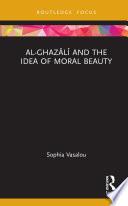
More moral than God
taking responsibility for religious violence
In the wake of the 9/11 tragedy recent political and religious conflicts, attention to religious violence has increased exponentially. Although violence in the name of religion has been around for centuries, there is increasing need to examine the roots of religious violence, with the hope of working for peace. In More Moral than God, Charlene Burns takes a unique look at the psychological motivations behind religious violence. Drawing from psychology, philosophy, and theology, Burns illuminates the interplay between our images of God, our individual egos, and our collective selves, and brings to light the degree to which each of us can and must take responsibility for the religious landscape. In addition to her own perspective on religious violence, Burns provides a brief history of religious violence and addresses other possible motivations, including politics, economics, globalization, family dynamics and more.
- ISBN 13 : 074256343X
- ISBN 10 : 9780742563438
- Judul : More moral than God
- Sub Judul : taking responsibility for religious violence
- Pengarang : Charlene Burns,
- Kategori : Religion
- Penerbit : Rowman & Littlefield Publishers
- Bahasa : en
- Tahun : 2008
- Halaman : 176
- Google Book : https://play.google.com/store/books/details?id=4n-33Jr6nB0C&source=gbs_api
-
Ketersediaan :
In the Sufi form of Islam, for example, this life is a journey that proceeds along horizontal and vertical paths. The horizontal journey involves physical birth, life, and death. The vertical journey is one that potentially culminates ...









